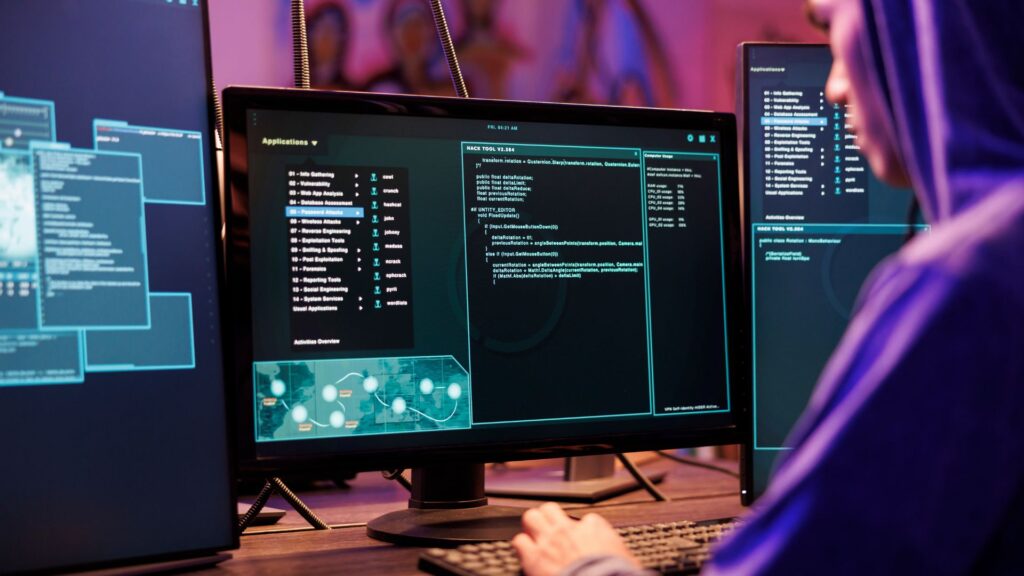
In the world of software development, the term “crunch” refers to an intense period of excessive work in order to meet a looming deadline. During a crunch period, the project team is forced to put in grueling hours, often working overtime, weekends, and under immense pressure.
The crunch typically occurs towards the end of a project’s development cycle when there are outstanding tasks that absolutely must be completed before the scheduled release date. With time running short, regular work hours are no longer sufficient to get everything done.
This crunch mode requires developers, designers, testers, and all members of the team to go into overdrive. They may work late into the night, pull all-nighters, and sacrifice personal time and work-life balance to push the project across the finish line.
Crunch periods are notorious for leading to burnout, mistakes due to exhaustion, stress, and a generally unhealthy culture. While sometimes crunch is unavoidable due to unrealistic schedules or mismanagement, excessive crunch raises ethical concerns about overworking employees.
Many in the industry are trying to “crunch the crunch” by better project planning, scope management, and creating more reasonable schedules and expectations. However, the crunch persists as a harsh reality, especially when a highly-anticipated game or major software product has an immovable release date.
The crunch controversy
While crunch may sometimes be a necessity to ship a product on time, the ethics and sustainability of excessive crunch periods are heavily debated in the industry. Prolonged periods of overtime can have serious negative impacts on workers’ mental and physical health.
Crunch is often cited as a major contributor to burnout and high turnover rates at game studios and software companies. Feeling overworked and underappreciated, many developers choose to leave for companies promoting better work-life balance.
There are also concerns that crunch leads to technical debt and bugs in the final product, as exhausted workers are more prone to human errors. This can then create even more crunch to fix issues post-launch.
Opponents argue that crunch is simply terrible management – the result of over-promising features, underestimating complexity, poor scheduling, or setting arbitrarily aggressive deadlines. If properly planned, they believe most true “crunches” could be avoided.
The crunch culture
Despite the downsides, crunch persists as an ingrained part of many development cultures. Some studios have even tried to normalize it as a badge of honor and professional dedication.
Younger developers often feel peer pressure to prove their passion by enduring extreme crunch periods. There can also be peer pressure applied by colleagues who all agree to work overtime together.
However, more workers are pushing back on this “crunch culture”, demanding reasonable hours, schedule realism, and better work-life sustainability from their employers.
The game industry has been at the epicenter of the crunch crisis, with high-profile reports of excessive overwork at major studios. This has catalyzed efforts by workers to unionize and pushed a reckoning around healthier work practices.
As awareness grows around work-life balance and workforce retention challenges, the software industry’s relationship with crunch may evolve – either through better project management or by developers simply refusing to be overworked.
Here’s a continuation of the article exploring the crunch culture in the software industry:
Crunching is not efficient
One of the biggest myths about crunch is that it actually increases productivity and helps get work done faster. In reality, numerous studies have shown that overworked, fatigued employees are much less efficient and make more mistakes.
After a certain number of hours, productivity plummets as workers become mentally exhausted. Code quality suffers, bugs increase, and technical debt accumulates – ultimately making the entire project take longer.
Dr. Chelsea Trudeau, an expert on workplace productivity states: “Crunch simply traded working time for sleep time. It doesn’t make people work faster or smarter. Prolonged periods of crunch just burn people out while creating low-quality work.”
There are also serious concerns that a constant crunch culture drives away top talent from companies and the industry altogether. As word spreads about studios that frequently crunch, it becomes harder to attract and retain experienced developers.
Crunch can crunch creativity
Beyond just productivity impacts, crunch can negatively affect the creative process critical for innovative software. Fatigued minds struggle with problem-solving, creative thinking, and looking at challenges from fresh perspectives.
“You can’t be creative and ingenious when you’re burnt out and sleep-deprived,” remarks Stephanie Johnson, a veteran game designer. “Crunch grinds away at the passion and creativity that makes people amazing at their jobs.”
With crunch, developers are just grinding to check things off a list rather than having the headspace for creative risk-taking or thoughtful design decisions. Over-crunching can ultimately make the final product worse.
The future of crunch
While some deadlines may always induce occasional crunch periods, the software industry is slowly evolving past the unhealthy norms of excessive overwork.
More companies are implementing policies like:
- Realistic schedules and project scoping
- Hiring enough developers to match workloads
- Limiting total allowed overtime per month
- Shutting down office access on nights/weekends
- Required Mental health support resources
Employee activism and worker solidarity are also challenging the worst crunch offenders to improve. Recruits are more selectively avoiding companies with reputations for crunch.
As the industry matures, there is hope that severe crunch will become as antiquated assmashing developers’ hands on keyboards to force productivity. With smarter ops and development priorities, the human cost of crunch may no longer be acceptable.
